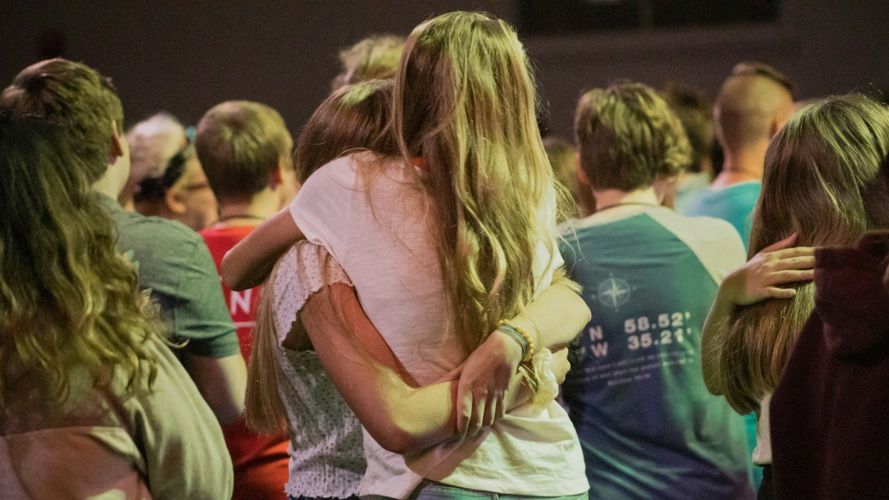How to choose the right summer camp for your child

Introduction
Choosing the right summer camp for your child can feel like a huge decision - especially for first-time parents. With so many options, formats, and promises, it’s easy to feel overwhelmed. This guide breaks down what to look for in a summer camp so you can feel confident knowing your choice supports your child’s growth, safety, and joy this summer.
Key takeaways:
- Define your child’s interests, needs, and readiness before choosing a camp
- Understand the difference between day and overnight camps
- Look closely at staff qualifications, safety protocols, and values
- Ask questions and use parent resources to compare programs
- Choosing the right summer camp is about fit - not just popularity
Table of Contents
Assess your child’s readiness
Every child grows at their own pace, and readiness for summer camp isn't just about age. Consider your child’s comfort level being away from home, their ability to follow group routines, and their interest in structured social settings. Some children thrive in day camps first and later move on to overnight experiences.
Talk with your child about what to expect and involve them in the process. Many camps offer pre-camp orientations or welcome materials to help your family ease into the idea. Emotional readiness is just as important as practical skills like packing or keeping track of belongings.
Choose the right camp type
There are dozens of camp formats - from outdoor adventure to arts to STEM. Start by asking what your child enjoys and what skills they’d like to develop. Some camps are general, while others are focused and specialized. Be sure to explore the differences between day and overnight options.
Here’s a quick overview of common program types:
- Day camps:Best for younger kids or hesitant first-timers who benefit from returning home each evening.
Learn more about day camp essentials
- Overnight camps:Builds independence, resilience, and deep friendships - ideal for confident or returning campers.
Learn more about overnight camp readiness or even compare day vs overnight camps.
- Specialty camps:Great for focused interests like sports, music, science, tech, or nature. A good fit for passionate kids who love a specific activity.
Learn more about general sports vs specialized sports camps
- Traditional camps:Offers a wide range of activities for well-rounded growth. Ideal if your child wants to try a bit of everything.
Learn more about traditional summer camps
You can also learn more in our guide to different types of summer camps for kids.
Match camp to your child’s personality
Every child is different. Some thrive in structured environments; others need space to explore at their own pace. Understanding your child’s personality can make all the difference in choosing a camp experience they’ll truly enjoy.
Ask yourself:
- Is my child energized or drained by social settings?
- Do they enjoy routines or need more freedom?
- Are they curious about new experiences or more cautious?
Matching camp style to temperament is one of the biggest predictors of a positive experience. Don’t just look at what sounds fun - consider how your child tends to engage, respond, and recharge.
Evaluate safety and supervision
Your child’s safety is non-negotiable. Look for camps with clear safety protocols, including medical care, emergency plans, and behavior management. Ask about the camper-to-staff ratio and whether counselors are trained in CPR or first aid. It’s okay to request proof of ACA accreditation or licensing where applicable.
Don’t hesitate to ask how camps handle homesickness or difficult peer dynamics. Responsible programs will walk you through their communication policies and how they prioritize camper wellbeing.
Learn more about camp safety and camp accreditation
Ask about staff and counselors
A camp’s team sets the tone for the entire experience. Look for programs that carefully screen and train their staff, especially counselors who spend the most time with kids. Strong camps invest in background checks, ongoing training, and mentoring systems for new hires.
Ask about the age and experience of the staff. Are they college students? Educators? Many great programs also employ older teen counselors-in-training (CITs), but they should never be left in charge without supervision. Clear leadership matters - especially for first-timers.
Learn more about the role of camp counselors and safety at camp
Match the camp’s values
Summer camp isn’t just about fun - it’s also about values. Some camps emphasize faith, inclusion, teamwork, or social justice. Others might prioritize independence, competition, or environmental awareness. Choose a program that reflects your family’s priorities and supports your child’s development.
Review the camp’s mission statement and daily structure. The best fit will feel aligned, not forced. Many parents also appreciate seeing how camps build character and emotional skills through conflict resolution, leadership, and cooperation.
Check location and logistics
The practical stuff matters too. Look at the camp’s location, drop-off and pick-up policies, session lengths, and what’s included in tuition. Will you need to pack lunch? Are extended care options available? What’s the refund or cancellation policy if plans change?
These logistical details help you plan ahead and avoid surprises. Use camp comparison tools or checklists to keep track of what each program offers - and how it aligns with your schedule, budget, and transportation options.
FAQ
- How do I know if my child is ready for overnight camp?
- Look for signs like independence at home, comfort with sleepovers, and curiosity about camp life. Many camps offer readiness checklists.
- Are ACA-accredited camps safer?
- ACA accreditation means the camp meets industry standards for health, safety, and program quality - it's one helpful benchmark to consider.
- What should I pack for camp?
- Each camp will provide a list, but basics often include clothes for all weather, swimwear, toiletries, and a sleeping bag for overnight camps.
- What if my child gets homesick?
- Most campers experience some homesickness. Great camps prepare staff to support kids through it and offer strategies for families before camp starts.
- How far in advance should we register?
- Popular camps fill fast. Start researching in the fall or early winter, and aim to register by spring. Earlier gives you more options.
- Do I need to visit the camp first?
- It’s not required, but many parents find it helpful. If a visit isn’t possible, look for virtual tours, videos, and parent reviews online.
Conclusion
Choosing a summer camp for the first time can feel like a big step - and it is. But with the right questions and resources, you’ll find a program that fits your child’s needs and your family’s values. Whether you're leaning toward day or overnight, arts or sports, big or small - trust that the right camp will help your child grow, connect, and have fun.



